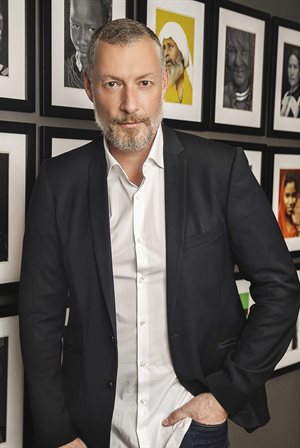The leadership development industry is going through a fundamental shift compared to five years ago. Collectively, organisations spend billions on training current and future managers. However, anecdotal evidence indicates that more than 50% of senior leaders believe that investing in leadership development is insufficient in building the crucial interpersonal skills and organisational capabilities needed for the future.

Brian Eagar, CEO of the Towerstone Leadership Centre
In the United States, barely 10% of the $200bn annual outlay for corporate training and development delivers concrete results, further highlighting the critical need for the leadership development industry to redesign their learning experiences.
Given the ever-shifting dynamics we see in political uncertainty (and conflict), the digital economy, constricted supply chains and remote work environments, I’ve seen the urgent need to develop leadership skills and organisational capabilities different to those that have allowed us to succeed in the past. The global workplace and new ways of working have made it necessary for us to prioritise a new range of “soft” collaborative and relational skills over and above the “hard” technical, functional, and managerial skills.
To thrive in today’s work environment, business leaders must realise that personal development is an ongoing journey and push themselves to become “infinite learners”. Not only should they possess a love for learning, but also feel the constant need to gather feedback, refine their daily habits and acquire new leadership skills to speed up their learning curve. Infinite learners are not immobilised by change, they thrive on it. Ultimately, this new leadership skillset requires a blend of individual initiative and group wisdom. Your capacity to reset your strategic goals, for instance, depends on your willingness to lay aside your ego, think outside the box, and draw on your team’s unique abilities and experiences.
Dr Nomvuselelo Songelwa 20 Apr 2022
Meeting the needs of future-fit learning
Traditionally, leadership development programmes have been designed as extensions of business qualifications and delivered through a variety of business schools, corporate universities, and strategy consultancies. Most of these programmes focused on discipline-based skillsets such as project management, financial analysis and quality control. Unfortunately, most of the programmes were also expensive, infrequent, and generic, without offering the value of developing the specific skills needed for a company's business and industry. There are several important reasons for the gap between traditional leadership learning models and the future-fit learning that is required today.
The first is a gap between an organisation’s motive (to build a leadership pipeline for the future) and that of the individual (advance my career, make my CV look good). Aspirant leaders are not actively enticed to remain with their employers who’ve paid for their training.
Another is the gap between the skills provided by the learning programmes and their relevance to an organisation’s agility – especially the interpersonal skills that are essential for today’s flat, networked, and globally connected organisations. Traditional providers tend to focus more on teaching cognitive skills but are far less experienced in teaching people how to communicate and work together effectively.
Skills transfer gap
The third reason, and the biggest challenge, is the skills transfer gap. Specifically, what is learnt in the classroom is rarely applied in the workplace! Ideally, the locus of acquisition (what we learn) should be as close as possible to the locus of application (how we apply new skills to our daily challenges). This is even more difficult when we adopt new behavioural and leadership skills, since behaviour change requires rewiring our habits, which can be a long and difficult process in itself. Traditional learning processes such as lectures, tests, and case studies will not modify behaviour.
To take control of our future, we must supplement our leadership development with a new learning strategy that prioritises people engagement over business results. Long-term organisational success will be dependent on a strong, purposeful culture that is collaboratively owned and shaped by your organisation's senior leaders.





















































